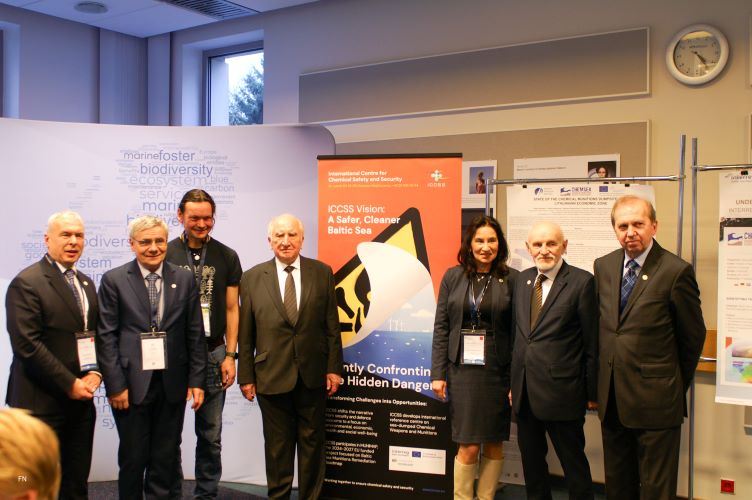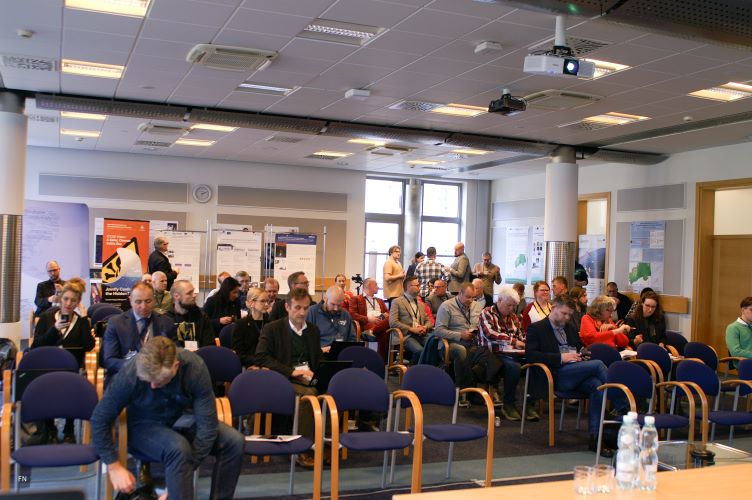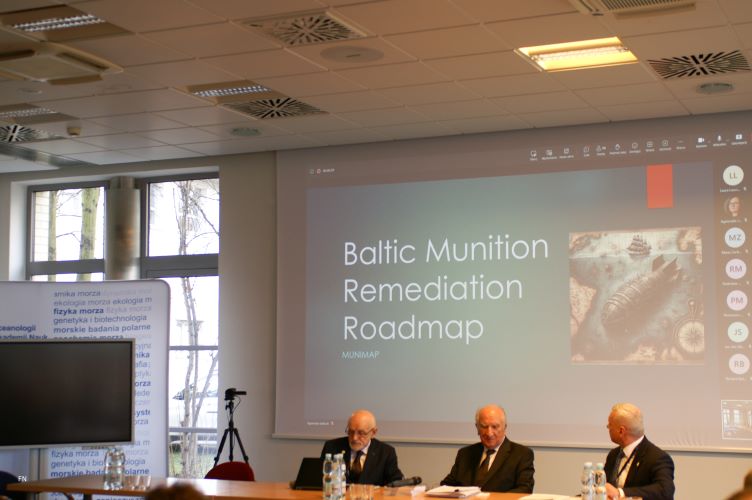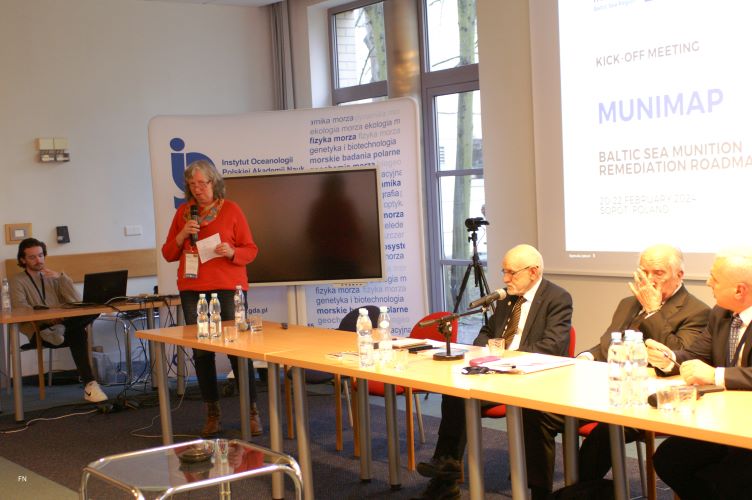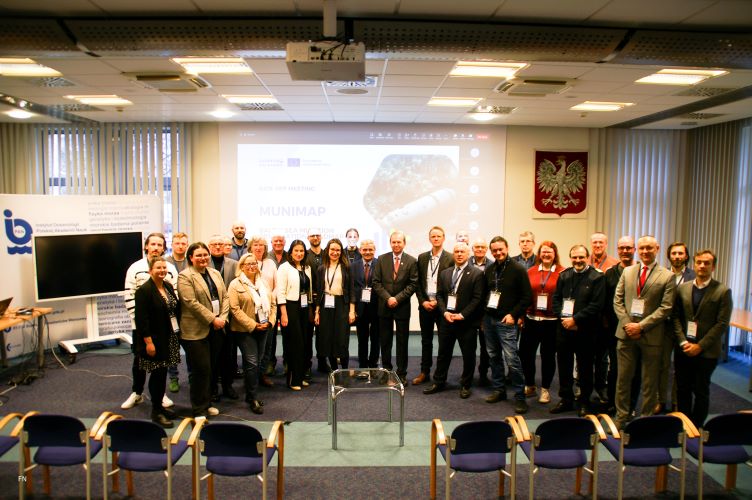MUNIMAP, initiated in Sopot (Poland) on 20the February, 2024, and led by the Institute of Oceanology of the Polish Academy of Sciences, embodies the broad vision of ICCSS, challenging the traditional perspective that views sea-dumped chemical weapons solely as a security or defense issue. ICCSS advocates for a comprehensive approach, recognizing these remnants of conflict as a multifaceted problem that impacts ecology, economy, health, society, and safety. By addressing the ecological, economic, health and societal implications of underwater munitions, MUNIMAP aims to catalyze a shift in how these hazards are managed and remediated.
Under ICCSS's guidance and leadership, MUNIMAP is set to enhance collaboration among a wide array of stakeholders. The project's ambition extends to shaping national and international regulatory frameworks that will pave the way to future remediation strategies. This strategic collaboration underscores the importance of unified action to ensure the Baltic Sea's environmental integrity and the safety of its surrounding communities.
The ICCSS has mobilized a cadre of internationally recognized experts to aid in transitioning the discourse from talk to tangible action. Among these esteemed experts is Prof. Stanisław Pawlak, a distinguished member of the International Tribunal for the Law of the Sea. Prof. Pawlak's insights into dumped munitions, framed within the context of the United Nations Convention on the Law of the Sea, were highlighted during the opening meeting of MUNIMAP, setting a precedent for the project's depth of analysis and scope of engagement.
The ICCSS has unveiled its leading publication: "From Talk to Walk: Addressing the Threat of Sea-Dumped Chemical Weapons (CDW) in the Baltic Sea. A Guidance to Action and Global Efforts." This publication presents ICCSS's broad approach to the issue, integrating perspectives from diplomacy, science, civil society, and industry to forge a path towards actionable solutions. The publication not only serves as a roadmap for the remediation of sea-dumped chemical weapons but also as a call to the international community for enhanced cooperation and commitment.
In its pursuit to establish a global focal point for this critical issue, ICCSS is advancing efforts to set up an International Centre on Sea-Dumped Chemical Weapons in Gdansk. This center will function as a nucleus for expertise, research, policy and technology development, facilitating an international collaboration and knowledge exchange in the remediation of sea-dumped chemical weapons and munitions.
For further information about the MUNIMAP project and ICCSS's broader efforts in chemical safety and security, please visit www.iccss.eu

